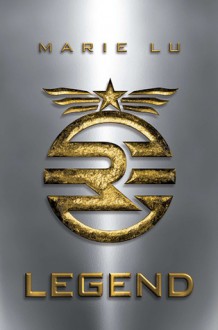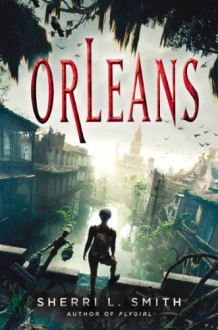
I remember when Legend came out and people were raving about how awesome it was. The hype was so much that when Marie Lu went to the LA Festival of Books to sell signed copies, I stopped by her booth just so I could read it and see what the raving was all about. Of course, I’m terrible at reading books right away since my to-read list is ridiculously long, so now, years later, I am finally getting to see what the hype is all about.
Legend is yet another YA dystopia, this time in a world with a militaristic/war focus rather than an we-are-a-perfect-society focus. People who are born into wealthy families are groomed for the military so they can help in the Republic’s fight against the Colonies. June is a military prodigy — she’s smart, athletic, and can think outside the box, and is being groomed for a distinguished military career. She goes on the hunt for Day — who is also smart, athletic, and can think outside the box — the Republic’s most wanted criminal who grew up in a poor district in the Republic.
When Day allegedly commits a crime that hits home for June, she goes on the hunt for him to bring him to justice. What ends up happening is that they both learn a little bit more about what’s really going on behind the closed doors of the Republic.
This book is just straight enjoyable. I love that Lu kept it simple in terms of creating her world: no factions or groups for people to be sorted into, just poor and rich; military and civilian. Because of this, I think this book gives quite an amazing commentary on society in general in terms of how poverty is viewed and taken advantage of, and how people suffer under such strict hierarchical structures.
The conflicts within this world are revealed slowly — no information dumps!!! I enjoyed that I slowly got introduced to the complexities of the government and of what went on behind closed doors. I feel like this is the main reason why I enjoyed Legend. There’s an inherent conflict and pull in trying to figure out what exactly is going on with this dystopia — when the plot needed to stop for character development, I was pulled forward by what I wanted to know about this new world.
However, this book is fairly predictable — I don’t think there was one twist that I didn’t see coming. Also, I have a pet peeve about people being in a life-or-death situation, yet romance seems to be a priority. I get the whole young adult romance angle, but it bothers me, especially from characters who are supposed to be super intelligent, even if they are young.
With that said, I still thoroughly enjoyed the narrative of the book. It’s perfect amounts of tragic and heartwarming and I am very much looking forward to reading the sequels to see what exactly is going on with all the war stuff. I’d recommend this book for any dystopia lover. It’s not the best book I’ve ever read, but it’s certainly better than many other dystopias out there.

 Log in with Facebook
Log in with Facebook 






